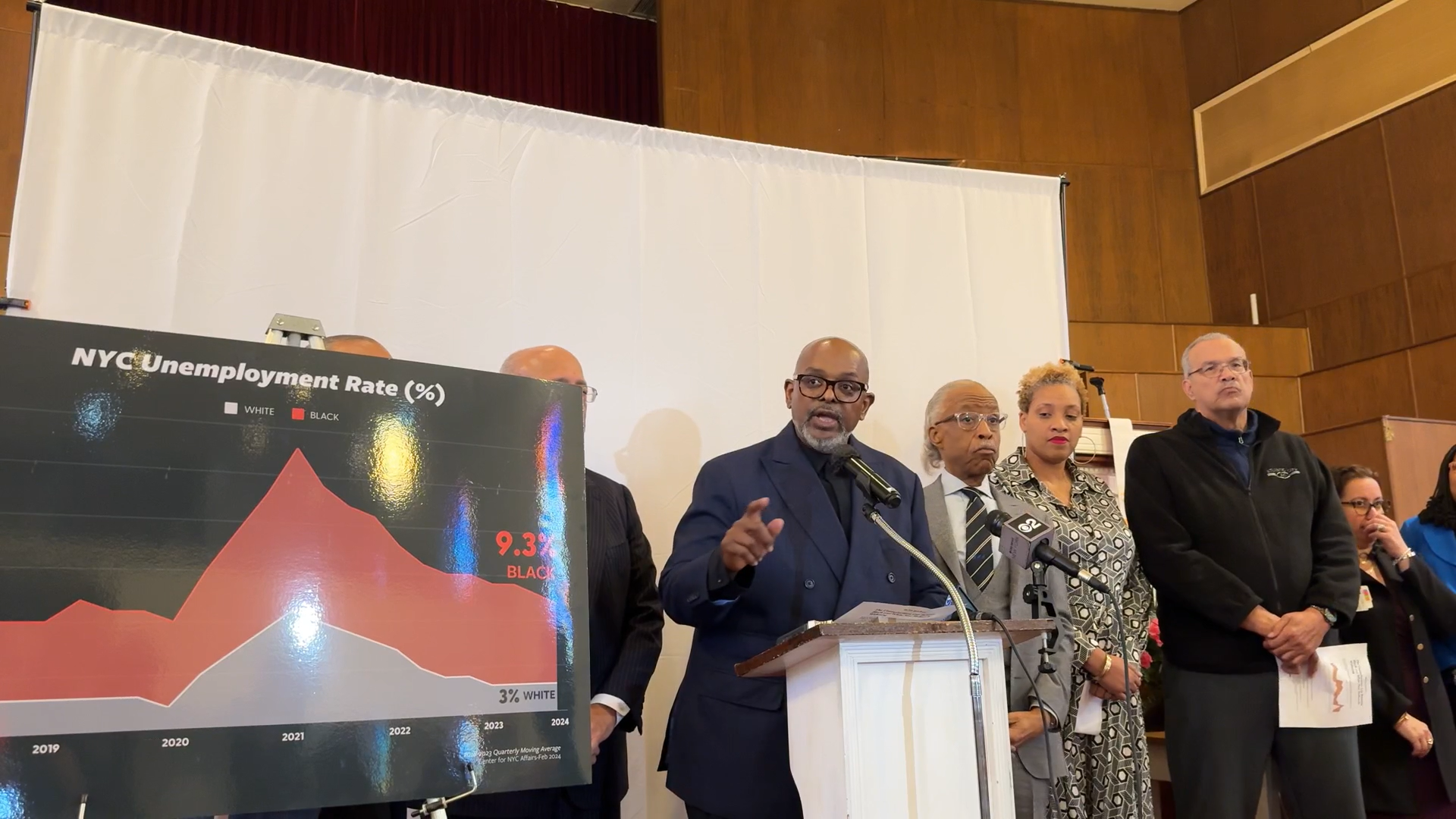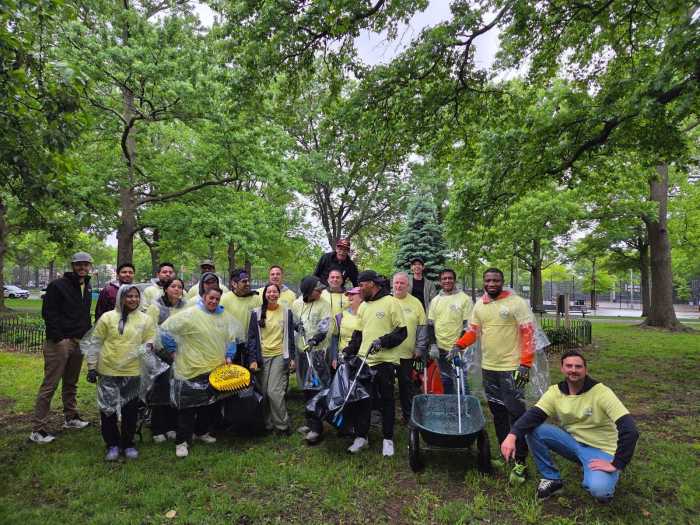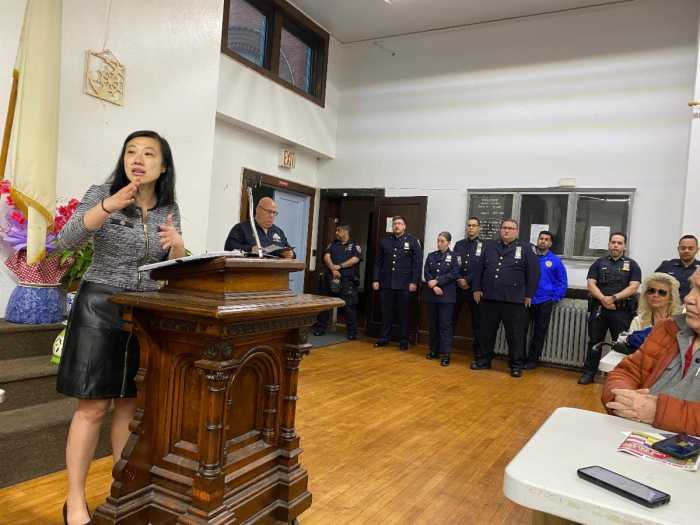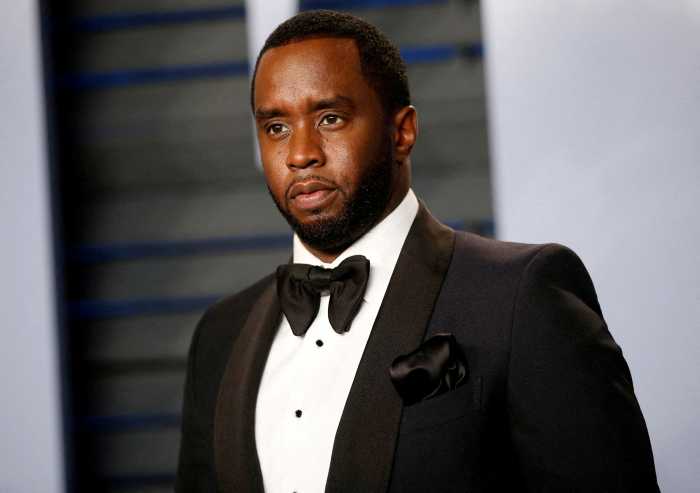Rev. Al Sharpton, the founder of the National Action Network, a New York-based civil rights organization, joined several community leaders at a church in East Elmhurst Thursday to discuss the high rate of unemployment among Black and Hispanic New Yorkers.
Sharpton, who spoke at the First Baptist Church of Corona, called upon the leaders of New York City and New York State to address the widening unemployment gap between Black and Brown New Yorkers and white residents. He also revealed that he and New York City Mayor Eric Adams plan to hold a summit at City Hall to discuss this issue.
According to the U.S. Bureau of Labor Statistics, the unemployment rate among Black New Yorkers was 9.3% in January, more than three times the 3% rate for white residents. The unemployment rate for Black New Yorkers was also higher than across the nation, with the nationwide figure for African Americans approaching 5.3%.
“For Black unemployment to be almost triple white unemployment in Queens, in the Bronx and in Brooklyn, is inexcusable,” Sharpton said, noting that residents in the boroughs are often forgotten about.
“Those who live in an outer borough should not be out of people’s minds in the State and Federal government. The threat to Diversity, Equity and Inclusion [DEI] within the private sector will only increase Black unemployment. It is time for an aggressive fight – and we intend to work with the Mayor and others to stand and be a part of that fight. We come to announce an aggressive campaign with the private sector, City and State governments and we intend to convene a Black unemployment summit at City Hall.”
In addition to Rev. Sharpton, other community leaders on hand who spoke on the issue included Rev. Patrick Young of the First Baptist Church of Corona, Elmcor Youth and Adult Activities CEO Saeeda Dunston, Assembly Member Jeffrion Aubry, former New York City Comptroller Bill Thompson, NYC Health + Hospitals/Elmhurst CEO Helen Arteaga, Urban Upbound Founder and CEO Mitchell Taylor, Mount Horeb Baptist Church Pastor Gilbert Pickett and NAACP Northeast Queens Branch Co-President Kenneth Cohen.
“We are in a crisis, both for the borough Queens and the State of New York,” Assembly Member Aubry said. “There is double-digit unemployment for Black people all across this State. We need the work that will be done to establish the better position for Black young men and women in this State, in this City and in this community.”
The disparities discussed were not only limited to economics. Arteaga pointed out that there are health disparities as well. She noted that since fewer African Americans in New York were employed, more of them are without the access to insurance and healthcare that comes with a job.
Young credited Sharpton for understanding the issues facing many Black and Brown residents in New York City. “He is a national leader, a state leader and a local leader,” Young said. “But most of all, he’s our community leader.”

Thompson mentioned the importance of the Metropolitan Park project—the $8 billion hotel and casino proposal that would go up by Citi Field—and how it would provide opportunities for minority and women-owned businesses. He believes the approximately 15,000 jobs the project would create could have a ripple effect and could see more Black and Brown New Yorkers employed.
Keith Cohen, a Flushing resident who represents the NAACP in northeast Queens, reiterated the potential opportunities for Black employment that the Metropolitan Park project could bring. He said the development marks the first time developers have come to offer opportunity to Black residents there.
“In order for us to make this city and country better when it comes to Black unemployment, we must come together with labor,” Cohen said. “This is our time to seek opportunity. However, we have to make sure it’s a fair opportunity. Let’s come together and make sure that we get equal opportunity and fair opportunity by making sure that we are able to sit down with those employers and negotiate and bargain good contracts for everybody.”
Rev. Young, of the First Baptist Church, said the city’s political leaders need to be made aware of the high unemployment rate of Black New Yorkers and the jobs Metropolitan Park could potentially bring.
“We want to make sure that all of our elected officials are very much aware and know the plight and predicament of our people in our community,” Young said. “We have an opportunity to make a difference and we’re here speaking to make sure that we can make a difference.”






































